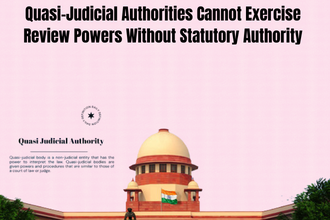Early Life and Education
Justice Dipankar Datta was born on February 9, 1965, into a legal family. His father, Justice Salil Kumar Datta, was a Judge of the Calcutta High Court, and his brother-in-law, Justice Amitava Roy, served as a Judge of the Supreme Court of India.
He completed his LL.B. from the University of Calcutta in 1989 as part of its inaugural five-year law program.
Legal Career
Justice Datta enrolled as an advocate on November 16, 1989, and specialized in constitutional and civil law. He primarily practiced in the Calcutta High Court and also appeared before the Supreme Court of India.
Between 1998 and 2004, he served as counsel for the Union of India and was Junior Standing Counsel for the State of West Bengal from 2002 to 2004. He also represented educational institutions such as the University of Calcutta and the West Bengal School Service Commission.
He was a guest lecturer on Constitutional Law at the University of Calcutta from 1996 to 2000.
Judicial Appointments
- June 22, 2006 – Appointed as Judge, Calcutta High Court.
- April 28, 2020 – Elevated as Chief Justice, Bombay High Court.
- December 12, 2022 – Appointed as Judge, Supreme Court of India. His tenure is expected to continue until February 8, 2030.
Notable Judgments
Media Trial in Sushant Singh Rajput Case
While serving as Chief Justice of the Bombay High Court, Justice Datta presided over a case regarding media coverage of Sushant Singh Rajput’s death. He ruled against sensationalized media trials, emphasizing that journalism must be responsible and should not interfere with ongoing investigations.
Protection of Children’s Rights
He issued guidelines for the effective implementation of the Protection of Children from Sexual Offences (POCSO) Act, ensuring that child victims’ rights are safeguarded during judicial proceedings.
Legacy and Contributions
Justice Dipankar Datta is known for his strong stance on constitutional values, judicial integrity, and human rights. His judgments have had a significant impact, particularly in areas such as media ethics and child protection laws. His tenure in the Supreme Court continues to shape important legal precedents in India.
VIDHI Litigation Internship by Think India
CBI Court Acquits Former High Court Judge Nirmal Yadav in ₹15 Lakh Cash Case


